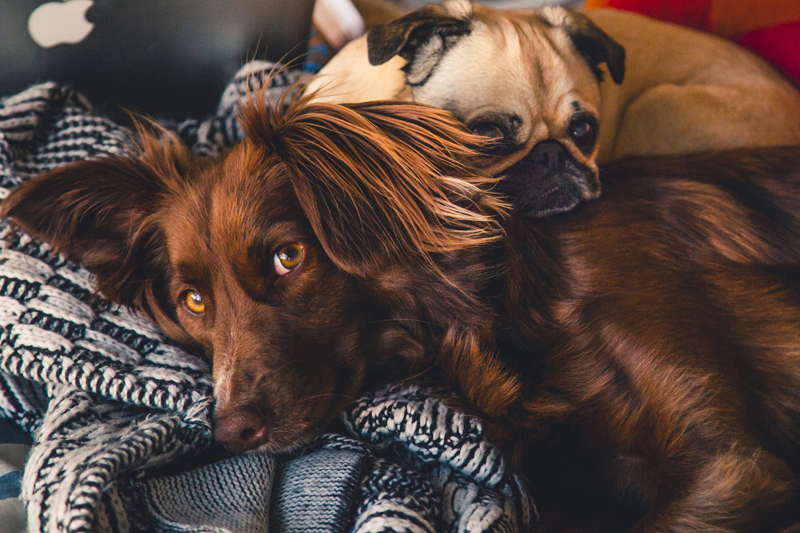Meat or Meatless

There is a growing argument among those that have, thus far, been on the same side of progressive environmental and humane issues. And that question is – is vegan the only way to ensure environmental sustainability and humane dealing with animals or can one have their grass-finished burger and a green and compassionate lifestyle too?
There is no question that those that care for the welfare of animals and the health of the environment find factory farming a reprehensible practice. The concentration of animals confined to concrete prisons that are too small to allow good sanitation nor anything resembling a normal life for the animals confined therein needs no debate – it is a practice that should be stopped and now.
The debate begins with the definitions of humane and sustainable.
We will explore the humane question first. Can you raise a farm animal, kill it and then eat it and still consider yourself one that is concerned with animal welfare? Those against this side of the debate feel that since most of us would not consider eating our pets or children that we really do know that consuming flesh of any kind is, in fact, morally wrong. The other side believes that animals are an acceptable food source if they are humanely raised as nature intended on vast open pastures and then killed swiftly without stress or pain.
Further questions arise – can we really humanely kill animals? To answer this we must know if animals contemplate their own mortality. If not then a humane death is likely. If so then we cannot alleviate all the anguish that would come from slaughter and a pain free death cannot be achieved – at least not if before the meat comes to the dinner table the animal must visit the slaughter house where thousands of animals have come to meet their end. The sheer act of moving an animal from a pasture where it has lived its entire life to the stockyard creates a great deal of stress, which nullifies the stress-free aspect by its very nature.
As for the sustainability question we face similar concerns. Again animals housed in the crowded conditions of a factory farm are not humanely raised. Factory farms also burden the environment causing air and water pollution from the concentrated populations of animals. But if those numbers of animals were sent out to graze on pastures the contribution of CO2 levels and waste run-off that contaminates water supplies would be the same on a global scale. Obviously the impact on the environment would be the same so from the sustainable question meat eating is far more detrimental that a plant-based diet.
However, from a logical and somewhat neutral viewpoint one might easily see that much of what is under debate actually comes from the total number of animals that are killed for consumption and not just the act of raising a single animal for meat. From this viewpoint it would seem a logical conclusion that meat is really just too easily obtained. If, as it was in the past, we had to procure meat from a local farmer and not the highly price competitive world of chain supermarkets, we would reduce the number of meat meals and this would allow the animals to be raised naturally as well as reduce the environmental impact.
A world without chickens, cows, sheep and pigs would be a much less interesting place to live. Not only due to their absence but also due to a less diverse plant base. Without the manure from these animals we would lose the bounty of such fertilizer. Tree and plant seeds would not be dispersed as the critters wonder from place to place defecating as they travel. The soil would grow less rich in organic material and crop yields would lessen. We would have to turn to chemical fertilizers, which of course burdens the world in yet another manner.
Everything in moderation is a saying that has been around for a very long time and it may just be time to put it into practice in our everyday lives. Buying local is a very good first step whether it be for produce or meat – become a localvore and help save the planet.
There is no question that those that care for the welfare of animals and the health of the environment find factory farming a reprehensible practice. The concentration of animals confined to concrete prisons that are too small to allow good sanitation nor anything resembling a normal life for the animals confined therein needs no debate – it is a practice that should be stopped and now.
The debate begins with the definitions of humane and sustainable.
We will explore the humane question first. Can you raise a farm animal, kill it and then eat it and still consider yourself one that is concerned with animal welfare? Those against this side of the debate feel that since most of us would not consider eating our pets or children that we really do know that consuming flesh of any kind is, in fact, morally wrong. The other side believes that animals are an acceptable food source if they are humanely raised as nature intended on vast open pastures and then killed swiftly without stress or pain.
Further questions arise – can we really humanely kill animals? To answer this we must know if animals contemplate their own mortality. If not then a humane death is likely. If so then we cannot alleviate all the anguish that would come from slaughter and a pain free death cannot be achieved – at least not if before the meat comes to the dinner table the animal must visit the slaughter house where thousands of animals have come to meet their end. The sheer act of moving an animal from a pasture where it has lived its entire life to the stockyard creates a great deal of stress, which nullifies the stress-free aspect by its very nature.
As for the sustainability question we face similar concerns. Again animals housed in the crowded conditions of a factory farm are not humanely raised. Factory farms also burden the environment causing air and water pollution from the concentrated populations of animals. But if those numbers of animals were sent out to graze on pastures the contribution of CO2 levels and waste run-off that contaminates water supplies would be the same on a global scale. Obviously the impact on the environment would be the same so from the sustainable question meat eating is far more detrimental that a plant-based diet.
However, from a logical and somewhat neutral viewpoint one might easily see that much of what is under debate actually comes from the total number of animals that are killed for consumption and not just the act of raising a single animal for meat. From this viewpoint it would seem a logical conclusion that meat is really just too easily obtained. If, as it was in the past, we had to procure meat from a local farmer and not the highly price competitive world of chain supermarkets, we would reduce the number of meat meals and this would allow the animals to be raised naturally as well as reduce the environmental impact.
A world without chickens, cows, sheep and pigs would be a much less interesting place to live. Not only due to their absence but also due to a less diverse plant base. Without the manure from these animals we would lose the bounty of such fertilizer. Tree and plant seeds would not be dispersed as the critters wonder from place to place defecating as they travel. The soil would grow less rich in organic material and crop yields would lessen. We would have to turn to chemical fertilizers, which of course burdens the world in yet another manner.
Everything in moderation is a saying that has been around for a very long time and it may just be time to put it into practice in our everyday lives. Buying local is a very good first step whether it be for produce or meat – become a localvore and help save the planet.
You Should Also Read:
Poultry
Food Re-Education

Related Articles
Editor's Picks Articles
Top Ten Articles
Previous Features
Site Map
Follow @WildlifeWelfare
Tweet
Content copyright © 2023 by Susan Hopf. All rights reserved.
This content was written by Susan Hopf. If you wish to use this content in any manner, you need written permission. Contact Deb Duxbury for details.






